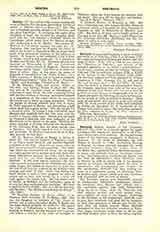

Berthier, GUILLAUME-FRANCOIS, a Jesuit professor and writer, b. at Issoudun, 1704; d. at Bourges, 1782. He taught philosophy at Rennes and Rouen, and theology at Paris. From 1745 to 1762 he was editor of the “Memoires de Trevoux”, and because of his powerful opposition to the infidel “encyclopedistes” was bitterly attacked, notably by Voltaire. Between 1745 and 1749 he published volumes XIII to XVIII of the history of the French Church (1320-1559). The previous volumes had been prepared by Fathers Longueval (I-VIII), Fontenai (IIX, X, and part of XI), and Brumoy (end of XI and XII). In 1762, when the Society of Jesus was suppressed in France, the Dauphin appointed him tutor of his sons and librarian of the court library, but two years later his position at court became so disagreeable that he left France and spent the following ten years in Germany. On his return, in 1774, he retired to Bourges. These years of retirement were spent in study and writing. After his death several of his works were published by Father de Querbeuf: (I) A translation of the Psalms with notes (8 vols.); this was often reprinted. (2) Five volumes on Isaias. (3) Five volumes of “Reflexions Spirituelles”.
JOHN CORBETT

